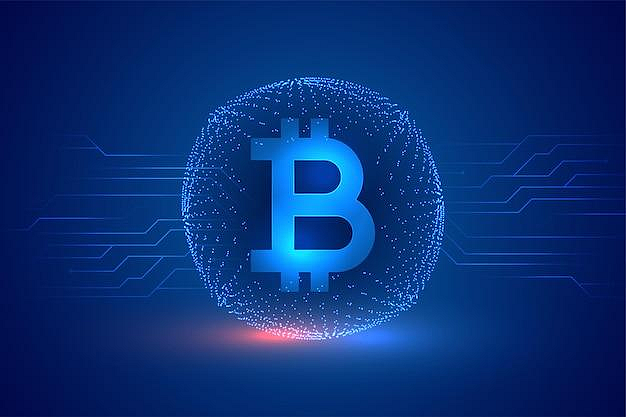Bitcoin has made financial freedom possible by enabling one to be his own bank. But with this comes an inherent problem: the safety of Bitcoin wallets. In contrast to money held in conventional institutions, Bitcoin lacks any protection of chargebacks, fraud checks, and theft insurance. A wallet is the sole communication between the owner and his Bitcoin, making it the solitary most vital element of owning cryptocurrency.
Why Wallet Security Is More Important Than Ever
The worth of Bitcoin has increased exponentially over the last ten years, making early adopters millionaires and attracting a new generation of investors. With the worth increasing, so does the motivation of cybercriminals to create elaborate means of attack. Wallets are one of the prime targets, not just because they hold value but also because they are irreversible. Once Bitcoins are withdrawn from a wallet by an attacker, they are effectively unrecoverable. This ruthless aspect makes security a precaution rather than a choice for all users of Bitcoin.
How Do Non-Custodial and Custodial Wallets Differ When It Comes to Security?
In discussing security, perhaps the first difference to learn is that of custodial versus non-custodial wallets.
Custodial wallets are administered by third-party platforms—exchanges in most cases—that hold users' private keys on their behalf. They might be easy to use, but they are also fraught with a point of failure. In the event of the platform being breached, all funds held under its custody are vulnerable. Prominent exchange hacks over the years serve as a reminder of these risks.
Non-custodial wallets put users in complete control. By holding their own private keys, users eliminate the threat of a centralized hack but bear full responsibility for secure storage. Forgetting the keys or seed words results in permanent loss of funds.
The trade-off underscores the fine line between convenience and authority. Most serious Bitcoin users embrace non-custodial wallets for security, taking responsibility with it.
What Is the Role of Encryption in Securing Wallets?
Encryption is among the quiet protectors of wallet security. If a wallet file or private key is encrypted, nobody can access it without using the proper password or verification method. This provides an extra barrier against theft, even if the device hosting the wallet ends up in the wrong hands.
But encryption is only as secure as the password selected. Cracked or recycled passwords defeat the whole system of protection, and brute-force attacks or credential breaches become much more productive. This is where responsible digital hygiene—distinctive, intricate, and periodically changed passwords—is a central component of wallet safety.
How Do Multisignature Wallets Improve Security?
Multisignature (multisig) technology is among the strongest developments in wallet security. In a multisig arrangement, authorization to access funds involves more than one private key. A wallet might be set up, for instance, to require two out of three keys to approve a transaction.
This method significantly minimizes the threat of theft. Even if a single key is hacked, bad actors cannot transfer funds without the other. Multisig is widely employed by businesses, institutions, and even conservative individual investors to establish a safety net against both external hacking and insider abuse. It is an efficient means of sharing trust without compromising security.
How Does Human Behavior Affect Wallet Security?
Regardless of how sophisticated wallet technology may be, the user themselves is usually the weakest link. Phishing tricks, social engineering, and loss of control over private keys take advantage of human fallibility instead of technological vulnerability. For example, a false wallet update link or keeping a seed phrase in an accessible document can compromise the most secure wallet.
Security isn't technical—it's psychological. Attackers feed on urgency, fear, and curiosity. A hasty choice, like typing recovery words into a suspicious website, can invalidate years of safe Bitcoin storage. So, developing awareness and wariness is as important as taking the correct tools.
What Are the Future Challenges in Bitcoin Wallet Security?
The security environment is dynamic. As the technology improves, so do the attack methods. Quantum computers, while in the early stages, are a future threat to current cryptographic mechanisms. Likewise, as mobile use expands, so does the threat of malware target wallet applications on mobile devices.
Moreover, as Bitcoin adoption spreads across demographics, newer users unfamiliar with digital security are becoming prime targets. Wallet providers must continue innovating—developing more user-friendly yet secure methods of safeguarding assets—while educating users on their responsibilities.
Can Hardware Wallets Guarantee Complete Protection?
Hardware wallets are commonly considered the gold standard of Bitcoin security due to the fact that they keep private keys offline from internet exposure. Even those, though, are not infallible. Supply chain attacks in which bad actors compromise devices prior to the device reaching the owner are still a threat. Physical theft, loss, or destruction of the hardware wallet can cause issues if backups are not being done.
Therefore, while hardware wallets very much cut down on online attack vectors, they do still require disciplined storage practices. Owners should ensure they keep recovery seeds safe, do not expose devices unnecessarily, and buy wallets only from trusted sources.
Final Thoughts
The security of Bitcoin wallets is an ongoing process not a single initialization. It combines technology, user responsibility, and ongoing watchfulness. From multisig and encryption to offline storage and responsible user habits, each step contributes to a fortress of security.
Ultimately, to own Bitcoin is not merely to adopt a new monetary system—it is to embrace the duty of protecting it. Wallets are not merely devices; they are vaults of cypherpunk freedom. And just as one would safeguard a monetary vault of gold with extreme diligence, Bitcoin wallets require an equivalent, if not superior, devotion to protection.





















